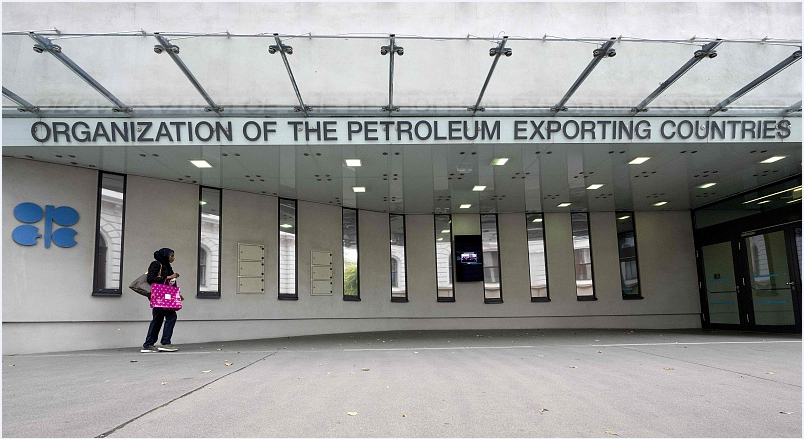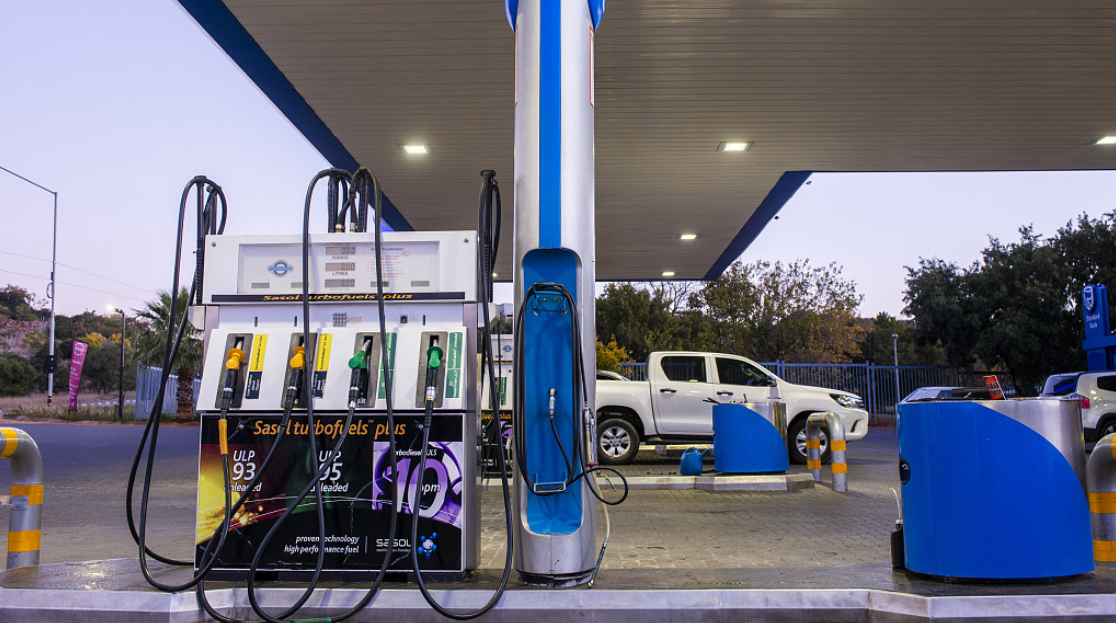
The OPEC headquarters in Vienna, Austria, October 4, 2022. /CFP
The OPEC headquarters in Vienna, Austria, October 4, 2022. /CFP
Editor's note: Bereket Sisay is a journalist and political commentator on African affairs. The article reflects the author's opinions and not necessarily the views of CGTN.
OPEC+ agreed to cut oil production output by two million barrels a day on October 5, sending a shock across the global north, especially EU bloc countries that have already been in an energy crisis as a result of the lingering Russia-Ukraine conflict. This decision came as the EU is looking for an alternative opportunity while pushing for recommending member countries to reduce their energy consumption, not because the winter season is approaching, but to abate the bloc's countries' energy dependency on Russia in the long run. The group said it would slash supplies in a bid to stabilize oil prices, which have fallen in recent months (down to about $90 from $120 three months ago) as the world economy slows down.
However, its justification was harshly criticized, not least by U.S. President Joe Biden. The White House called the group's move "a short-sighted decision." However, the OPEC members insisted on the veracity of their decision in light of uncertainty regarding future demand for oil and amid fears that the global economy is sleepwalking into recession.
To speak from an African perspective, one should pose the question: What does this oil production cut mean for Africa? Will even a small number of African oil-producing countries benefit from the expected rise in global oil prices? This kind of question puts the continent in the horns of a dilemma as there is a high expectation that Africa's main petroleum exporter countries will benefit from the latest decisions, while significant others in the continent will be at risk of not coping with the compounding challenges prompted by the reduction of oil production and the inevitable skyrocketing oil price.
Africa's combined oil production is less than a tenth of total global output, and the benefits will almost certainly be equal to its contribution, so the benefit is minimal. However, in highlighting the impact it poses on the continent, it's imminent. The immediate consequence of the move would be a shortage of oil in many African countries. The perpetual price hike will boost the import bill for Africa's oil imports and that would devastate the trade imbalance of many sub-Saharan African countries that are now grappling to revive from the havoc wreaked by the COVID-19 pandemic, side effects from the Russia-Ukraine war food supply, and the climate change induced drought with its related catastrophes.

A gas station in Pretoria, South Africa, June 4, 2020. /CFP
A gas station in Pretoria, South Africa, June 4, 2020. /CFP
According to the International Monetary Fund (IMF) data, staple food prices in sub-Saharan Africa surged by an average of 23.9 percent in 2020-2022, the highest rate since the 2008 global financial crisis. In addition to general price increases, this equates to an 8.5 percent increase in the cost of a typical food consumption basket. Prices of locally sourced staples have also spiked in some countries on the back of domestic supply disruptions, local currency depreciations, and higher fertilizer and input costs. This oil production cut – with the aim of pushing up the price in the foreseeable future, will exacerbate these problems since it will lead to the rise of transport and other consumer costs, which will lead to a higher cost of living.
The majority of African countries have no petroleum industry and simply import products for final consumption. Hence, the expected likelihood of an oil price spike will severely impact their economy. The transport cost in Africa has always been a trade barrier as it has import restrictions and trade restrictions. Transport costs can sometimes be very high compared to the value of the goods transported as the transport industry lacks modernization and simplicity. Moreover, the distance between production areas and the ultimate customers, particularly for food items, is too long which will lead to incurring high transportation costs. Landlocked countries that import consumer goods from remote suppliers via land or air routes will be vulnerable as oil prices rise and transportation costs inevitably rise.
This would negatively impact the price of consumer food, which has been climbing since 2020 as a result of domestic and external global economic challenges. As a result, the OPEC+ resolution, particularly its intention to shore up the price per barrel, will exacerbate Africa's economic woes. Therefore, African countries should exert maximum efforts to improve energy efficiency to reduce the likelihood of oil price rises.
A wide range of measures needs to be taken into account to maximize the use of imported oil efficiently and, thereby, to reduce net oil import proportions to minimize costs. More broadly, African countries need to consider those mechanisms to reduce their exclusive energy dependence on oil. Reducing oil demand by transiting to renewable resources would be a sustainable solution either for the short or long term. Conversely, if Africa is to be reckoned as a beneficiary or to draw benefits from the upcoming likelihood of an oil price upturn, these few oil producing countries need to strengthen their crude oil production and refinery capabilities.
(If you want to contribute and have specific expertise, please contact us at opinions@cgtn.com. Follow @thouse_opinions on Twitter to discover the latest commentaries in the CGTN Opinion Section.)